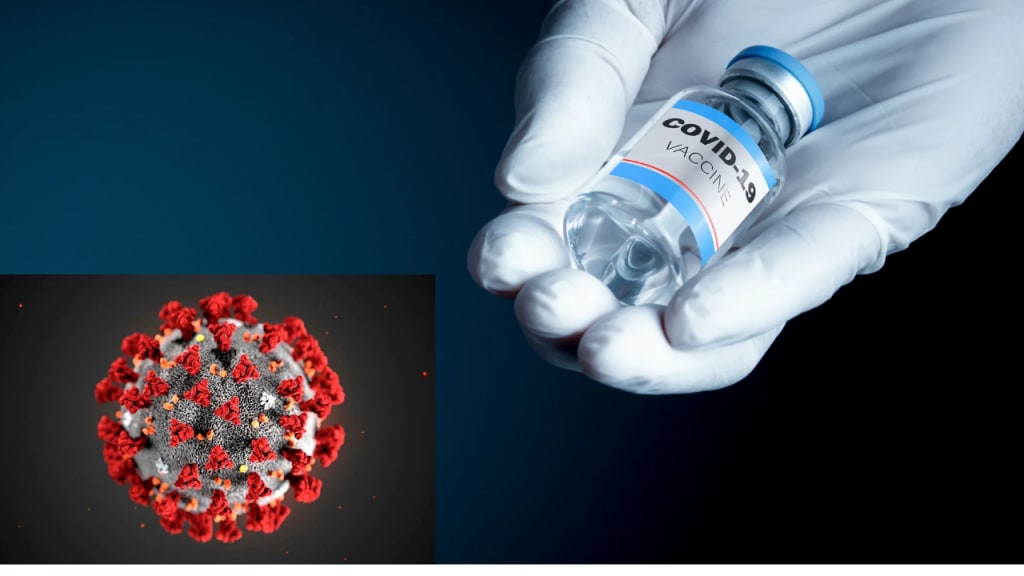The Global Pandemic And Vaccine Rollout
A virus that rules the whole world

The global pandemic, caused by the severe acute respiratory syndrome coronavirus 2 (SARS-CoV-2), has had a profound impact on the world since its emergence in late 2019. The virus has spread rapidly, causing widespread illness and death, as well as significant disruptions to economies, societies, and individuals. In response, the global community has launched a massive effort to contain the spread of the virus and to develop and distribute vaccines.
The COVID-19 pandemic has exposed the vulnerabilities of many of the world's healthcare systems and has highlighted the critical importance of preparedness and response. The virus has overwhelmed healthcare systems in many countries, leading to a shortage of hospital beds, medical supplies, and healthcare workers. Governments and communities have had to take extraordinary measures to slow the spread of the virus, including lockdowns, travel restrictions, and mandates to wear masks and practice physical distancing.
Despite the many challenges posed by the pandemic, the global community has come together in an unprecedented effort to respond. Scientists and researchers have worked around the clock to understand the virus and develop effective treatments and vaccines. Pharmaceutical companies and governments have invested billions of dollars in the development, manufacturing, and distribution of vaccines.
As of late 2022, multiple vaccines have been authorized for emergency use by regulatory agencies around the world, and vaccination programs have been launched in many countries. These vaccines have been shown to be highly effective in preventing illness and death from COVID-19, and they are a critical tool in ending the pandemic.
However, the vaccine rollout has not been without challenges. There have been disparities in access to vaccines between rich and poor countries, as well as within countries based on factors such as race and socioeconomic status. There have also been concerns about the safety and efficacy of some of the vaccines, which has led to hesitancy among some populations.
To overcome these challenges, it is important to continue to invest in the development and distribution of vaccines and to work to address vaccine hesitancy. This will require strong leadership, effective communication, and ongoing engagement with communities to build trust and understanding about the benefits of vaccination.
In addition, it will be important to continue to monitor the spread of the virus and to adapt our response as new information becomes available. This may involve adjusting our public health measures, such as lockdowns and physical distancing requirements, and implementing new strategies to manage the spread of the virus and protect vulnerable populations.
The global pandemic has been a challenging and difficult time for the world, but it has also demonstrated our ability to come together and respond to a global crisis. The development and distribution of vaccines is a critical step towards ending the pandemic and returning to a more normal way of life. However, there is still much work to be done, and it will take continued effort and cooperation to ensure a successful and equitable vaccine rollout.
In conclusion, the global pandemic and vaccine rollout have had a profound impact on the world, and they continue to pose significant challenges. However,by by working together and continuing to invest in our response, we can overcome these challenges and build a more resilient and prepared world for the future.
S
The COVID-19 vaccine is a medical product designed to protect individuals from severe acute respiratory syndrome coronavirus 2 (SARS-CoV-2), the virus that causes COVID-19. There are several different vaccines that have been developed and authorized for emergency use in response to the global pandemic. These vaccines use different technologies and approaches, but they all work by eliciting an immune response that helps protect against COVID-19.
The vaccines work by introducing a piece of the virus into the body, which triggers an immune response. This immune response prepares the body to recognize and respond to the virus if it encounters it again in the future. In the case of COVID-19, the vaccines have been shown to be highly effective in preventing illness and death from the virus.
The COVID-19 vaccines have undergone extensive testing and clinical trials to determine their safety and efficacy. These trials have involved tens of thousands of participants from diverse populations, and the results have been reviewed by independent experts and regulatory agencies around the world. Based on the evidence, the vaccines have been authorized for emergency use and are recommended for widespread use to protect against COVID-19.
It is important to note that like all medical products, the COVID-19 vaccines can have side effects. These side effects are typically mild and temporary, such as soreness at the injection site, fatigue, headache, and muscle aches. In rare cases, more serious side effects can occur, such as anaphylaxis. However, the benefits of vaccination greatly outweigh the risks, and the COVID-19 vaccines have been shown to be safe and effective in preventing illness and death from the virus.
In addition, the COVID-19 vaccines have been shown to be highly effective in reducing the spread of the virus, which is important for controlling the pandemic. By getting vaccinated, individuals not only protect themselves, but they also help to protect others and to slow the spread of the virus.
In conclusion, the COVID-19 vaccine is a critical tool in ending the global pandemic. It is safe, effective, and highly recommended for widespread use to protect against COVID-19. By getting vaccinated, individuals can protect themselves and help to protect others and to bring an end to the pandemic.
ChatGPT
ChatGPT






Comments
There are no comments for this story
Be the first to respond and start the conversation.